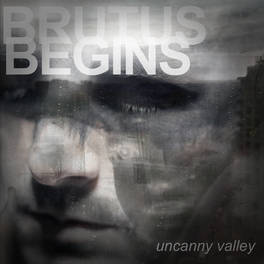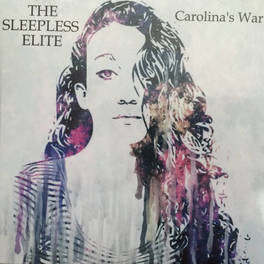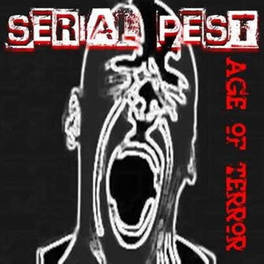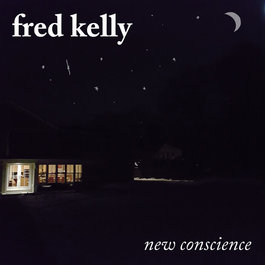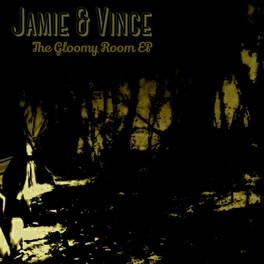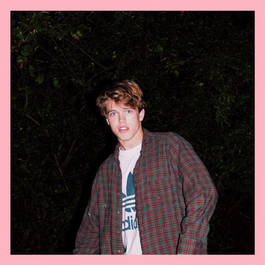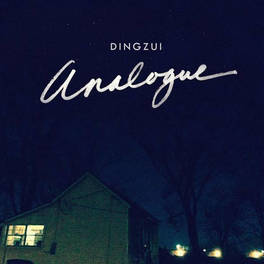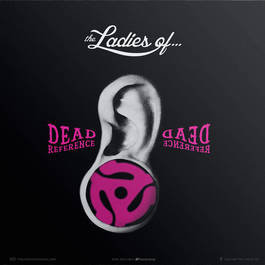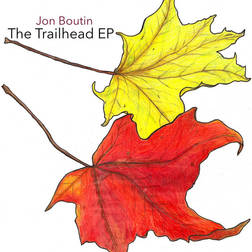|
More like "augmented valley," Portuguese-Canadian musician/producer Brutus Begins explores the interplay of the artificial and the organic on Uncanny Valley with stunning results.
The "Uncanny Valley" is a popular digital theory, based on the theory of the uncanny by Sigmund Freud, to explain the repulsion we feel when manufactured items become too close to humanoid. When automatons become too lifelike, they begin to look like jittering corpses with frozen rictuses, cavorting in glee. "Augmented Reality" however, is the interplay of the digital and the mundane, via devices like Google Glass, Microsoft's Holo Lens, and other ways to break out the Digital World into waking reality. In light of this distinction, Brutus Begins' Uncanny Valley is definitely much more augmented than uncanny, as Ricardo Temparao's beguiling mixture of rock instruments and electronic music is as addicting and inviting as a soma hit in Aldous Huxley's Brave New World. Impressively, Brutus Begins' art rock throws back to similar futurist opuses of the '70s, most specifically David Bowie's Berlin Trilogy with Brian Eno at the helm, complete with soaring Fripp guitar solos and deep, powerful bass synth that sucks you down into the depths like some mammoth tar pit. Considering that the Berlin trilogy is some of the earliest, best and most beloved synth/pop hybridizations ever, this is high praise indeed. Temparao's vocals have a similarly hypnotic, psychedelic quality to Bowie's, or similar psychonauts like Syd Barrett or John Lennon, as with the album opener "Never Fade" featuring an "I Am The Walrus"-like chorus. Please do note we're referencing some of the highest quality, biggest budget, most notorious technological psychedelic rock records OF ALL TIME - not too shabby for a debut EP. This may be Brutus Begins' beginning, but it's not Temparao's first rodeo. He’s played in several notable Canadian bands, as well as composing music for several short films and TV programs, and directing several music videos. All of this experience combines to create one of the most compelling and high-quality debuts we've heard in a decade. Definitely expect great things from Brutus Begins! If you like Bowie, T. Rex, early Death Cab For Cutie, Gary Numan, Depeche Mode, or recent pop/rock/electronic hybrids like Moderat, get this immediately and tell everyone you know! Art like this will only grow and flourish if it's supported. Somehow we think Brutus Begins will have no trouble turning a few heads, but why not make it easy for them, and claim some bragging rights along the way!
0 Comments
In 1948, the painter Andrew Wyeth captured a sliver of disappearing Americana in his painting Christina’s World. The painting depicts a lone woman in a faded pink dress, crawling across the Maine grasslands towards a distant barn/farmhouse in the distance.
Interpretations have varied from critic to critic in the ensuing 70 years, but regardless, it is a striking depiction of both rural living, in general, and the lives of women, in particular, at that point in time. Given the opportunities and resources of modernity, our world has grown, supposedly leaving this one-horse world in the dust. What do those opportunities mean, however, when you have to work 70+ hours just to make ends meet and have a little safety net? Sometimes - even while we can seemingly hold the whole world in the palm of our hands - the horizon seems to be receding like some frustrating nightmare, when we can’t even afford a spare gallon of gas to go for a stress-relieving drive, and many of us can’t even afford basic human traditions like going home for holidays, let alone, god forbid, take a vacation or, even more heretically, try and pursue a career in the creative industry. Yes, ladies and gentlemen, there is a war going on, a war for our freedom, a war for our very souls. This is Carolina’s War. Carolina’s War was also the original name of The Sleepless Elite, an indie quartet from Boston, Massachussetts. Carolina’s War was originally just Carolina Kehoe, the driving force behind Carolina’s War as principal singer/songwriter and ukulele player. After answering an auspicious Craigslist ad, Kehoe and her boyfriend ended up living with Ben and Lisa Deilly. Ben Deilly is a former member of the popular but underappreciated ‘90s band The Lemonheads. The Deilly’s convinced Kehoe to quit school to start a band and follow her dreams, in true rock n’ roll fashion. Carolina’s War is a short but sweet debut LP, written raw, ragged, and off-the-cuff, to be able to open for Ben Deilly’s new band, Varsity Drag. Although Kehoe describes Carolina’s War as being “mostly pop punk,” if this is the case, it would be of the early ‘80s variety, as Carolina’s War is much more The Pretenders or Joan Jett than Fall Out Boy or Jawbreaker. The guitars are thicker and heavier- hitting than the often thin, tinny ‘00s emo production, while Kehoe’s vocals definitely fall in a similar, powerful vocal range to other lady boss punks like Patti Smith, Chrissi Hynde, Kim Gordon from Sonic Youth, on and on. Likewise, The Sleepless Elite is a little too charged to be a pop/rock band, a little too intricate and considered to be purely punk, a little too electric to be folk, but a little too confessional to be metal. Kehoe isn’t afraid to show her beating heart, while revealing it is capable of being steely, when called for. Even though we have every opportunity at our disposal, these days, we still have to fight to preserve our rights and freedoms, unless our world starts shrinking around us. Our whole world can become a few block radius, if we’re not careful, falling into the endless work/home/sleep triangle of endless indentured servants. And it’s not just the ladies who need to be worried about being trapped at home, at this point. Considering that this is the new normal, there is actual no better time to strike out, take a risk, and follow your dreams. As The Grateful Dead say in “The Lady With A Fan,” “I will not forgive you / if you will not take a chance.” A very strong debut from a committed group of musicians. Expect to hear more from The Sleepless Elite.
Punk rock is such a funny, contradictory music. The less it gives a shit, the better it sounds.
Age Of Terror from Melbourne, Australia's Serial Pest, is a pure blast of primal punk tumult and revolt, against the increasingly conservative Australian government. They turn their withering gaze and ferocious guitars to everything from religious xenophobia ("Intifada") to right wing radio personalities ("Shock Jock Riot"). Like the political unrest of the late '70s and early '80s in the US and UK, it seems that Australians have a banner to rally under, which does so much to give music primacy and force. Sonically, Serial Pest isn't reinventing the wheel. Social Pest deals in amped-up, stripped-down rock n’ roll with thick slabs of propulsive rock, bolstered with pummeling bass and shrieking, yowling vocals, laced through with furious feedback and strange noises. Serial Pest hearkens back to a time when punk rock wasn't afraid to be nasty, to be unpleasant, to be angry and aggressive, even at the risk of sounding unpleasant. They're an update on the sarcastic rock of the Dead Kennedys, laced with a bit of mutant-like Amphetamine Reptiles misanthropy, along with a bit of their lumbering metallic underpinnings. The only downside of this infatuation are punk/hardcore's somewhat less-than-masterful vocals. Serial Pest's vocalist features rough, garbled, throat-shredding, off-key, off-kilter vocals. At times it works, sounding like Iggy Pop's glory days, and at times it just seems out of tune and out of place. It's no worries, though, as Serial Pest also underscores their primal rock fury with doses of catchy, boppy lysergic peppiness, a la The Ramones or even early Weezer, so Serial Pest's songs will stick in your ears while their messages stick in your brain. That's the great thing about punk. You get to start where you are, speak your mind and learn while you go. If we all waited until we were perfect to speak our minds, this world would be a very quiet place, indeed.
It says a lot about our society when a high school senior sounds like a 70-year old world-weary war veteran. While it’s not that surprising to dispel the “best years of our lives” myth of adolescence, which can be a confusing and tumultuous time, the fear, confusion, aimlessness and resignation of Wellesley, Massachusetts’ Fred Kelly is a bit startling, not to mention worrisome.
“Wouldn’t mind the grind / if it ever ended / wouldn’t mind the grind / If it brought me closer to you,” sings Kelly over a knotty, gnarled electric guitar line and weirdly intricate drumming of album opener “Seventy One Percent” from New Conscience by Fred Kelly. Stepping out into the unknown is always intimidating, but Kelly’s reedy tenor gives a chilling voice to a future in free-fall, like Wiley Coyote spinning his legs for eternity to keep gravity at bay. Kelly speaks with the wisdom of someone two and a half times his age, speaking of tired eyes and “the adult I should be by now.” Kelly’s all-too-aware that time is of the essence. There is a feeling that if you haven’t founded your first start-up before you’re out of high school, the race has already been run. It’s already too late. Listening to New Conscience reminds us all that this is all utter bullshit. As Penelope Cruz reminds us in Vanilla Sky, “every passing moment is another chance to turn it around.” And Fred Kelly hasn’t exactly been wasting his time, judging from the musicianship and production skills on this debut. New Conscience falls, most pertinently, into the genres of ‘anti folk/folk punk’ - intellectual lyrics over rough and raw usually acoustic instrumentation from artists like Andrew Jackson Jihad along with genre’s patron saints like The Microphones/Mount Eerie, The Mountain Goats, and Neutral Milk Hotel. Like The Microphones or The Mountain Goats, Kelly relies more on emotion and expression than technicality, when he pushes his vocals to the edge of breaking into a million pieces, as an effect. Unlike many folk punks, however, Kelly doesn’t stop at the raw, ragged sounds of lo-fi. You can hear Kelly’s other half of infectious power pop a la Weezer in the anthemic, melodic, memorable guitar hooks and sing-along choruses, which will do a lot to make sure that many will hear Kelly’s songs of existential protest. Kelly kicked his musical career into third gear after winning 2014’s Berklee Songwriter’s Showcase. Fred Kelly went above and beyond, with New Conscience, recording every element and aspect of this delicious debut himself, using a modest two-channel audio interface and built-in FX. These are the details that help someone thrive not only in the music world, writing compelling, relatable songs that people will love and bring into their lives, but also in every other aspect of life. It’s not entirely a newsflash that the status quo have absolutely zero clues about how the world functions any longer. It seems that the more jaded and out of step someone feels, the better off they’ll probably be. In a world that rewards mediocrity and selfishness, isn’t it about time we really strive for something exceptional? New Conscience is one outcropping of that urge. “This is going to be my year,” concludes Kelly on “365.” We agree, mate, we agree.
The band name Jamie Rodgers (vocals/guitar/bass) and Vince Harris (drums/guitar) came up with is in fact Jamie and Vince. Does anyone else out there find this mildly funny? Anyway the band recently released an EP entitled The Gloomy Room.
The four songs veer towards heavy American pop/rock. These are the types of songs you associate with a band like John Mellencamp, Ryan Adams or other acts that don’t seem to have an ounce of foreign influence. The EP is DIY effort and I think they do a good job when it comes to the mix. That being said the EP would have benefited from being professionally mastered. There is a noticeable difference in volume if you compare the first song to the third. The EP starts with a highlight entitled “The Dueling” which is a purely instrumental featuring some solid guitar and bass work. It’s a tight well-crafted song but I do wish they did a little more with it. A solid groove that could have been a fleshed out song. Up next is “Cascader” which is a fully fleshed out song harking back to ‘70s classic rock. They are American hard rock strong in this song. The band sticks to the basics. Nothing to fancy or experimental. Good stuff. “Marianne” mixes Americana with country flair. This could be a John Mellencamp B-side. Unfortunately the song is held back by the recording quality. The song was missing some essential frequencies, which provide a warm low-end. They close with an emotionally resonant acoustic song “Will You Ever Leave My Eyes.” Jamie and Vince write straightforward songs without many surprises. They certainly aren’t doing anything that hasn't been done before but they do have some talent. I think a boost in the production and recording quality department is the next thing they should be thinking about.
Andrew Newman is an artist and producer from Mississippi who goes by the alias of Lo Noom and has just released an EP titled Pretty Woman EP. He composes some pretty brilliant pop music that fuses a plethora of elements from a multitude of different genres, such as folk, rock, synth-pop, and R&B. His last work, Groovy, was also reviewed by us, and, considering that was rated highly a year ago, he has done nothing but improve and grow as a musician.
As if writing, recording, and producing his own album is not enough, he is also only 18 years of age, demonstrating to his older listeners that age needn’t be necessary to make emotional and complex music. As a 19-year-old who frequently reviews music written by those twice my age, it’s really refreshing to study someone’s creation that I can more properly internalize. When listening to Pretty Woman EP, I get the gist that making music is something that comes easy to Newman. Throughout the entirety of the album, all of the little details that make great songs are there - nothing seems to be “missing.” Sometimes, with music, it is best to analyze it with an approach similar to that of the ancient Jewish philosopher Maimonides: it is most accurate to study something of substance by ascribing negative qualities and evaluating what is missing as opposed to granting positive attributes, and with this being said, I found all of the necessary elements to be there, and then some, with nothing crucial absent. Because all six (I wish there were more) tracks were so solid, I think it would be rather unfair to point out the notable tracks, so I think it would be easier to just point out some specific moments I enjoyed throughout the EP. However, before doing so, it is important to note that the production quality of Pretty Woman EP is pretty stellar. If Newman hadn’t mentioned in his description that he recorded this work at home by himself, I would have assumed it was done professionally. The falsetto kicks some major ass throughout the EP. Notable times are early on in “Wild” and the choruses in “Once In A Million Years.” I would say that the music is very vocally driven, as they are always mixed pretty highly, but I would follow that up by saying that this is a good thing, as the vocal lines are strong and the pitches are pretty flawless. I also enjoyed the use of harmony in Pretty Woman EP, and there’s a lot of it. Newman has one of those voices that does really well with upbeat music because of its clarity and tonality, and the nature of the EP suits this properly. A lot of the time when artists state that their music does not have a definitive genre, their music is all over the place, which is not necessarily a bad thing, however sometimes there isn’t really anything to hold it together. Although Pretty Woman EP certainly doesn’t fall under a genre, the vibes given off by the music are fairly consistent, and all of the songs work pretty well with each other. For example, although “Once In A Million Years” is a bit harder than the rest of the tunes, it was still obviously Lo Noom doing his thing, and although “Pretty Woman” is a bit more tame than the rest of the tracks, the vocal delivery still clearly indicates Newman behind the mic. Listening to this EP gave me a really nice feeling. Being given the opportunity to review someone’s music that is close to me in age puts a lot of things into perspective and allowed me to appreciate the quality of Lo Noom’s work to the fullest. I can honestly say that I am pretty impressed with this EP, and work of this caliber for someone of just 18 years is pretty outstanding. Some people just have that thing, and Newman has it (whatever the hell it is). As someone who just finished their first year of college and I am aware of the opportunities that university presents, I genuinely hope that Newman continues a career and educational path in music, as I see some long-term success in his future.
Analogue, the debut EP from Dingzui, sounds like the work of a much older band. Not to say that these guys are dated or sound like dad-rock—quite the contrary. The album maintains the production value of seasoned studio vets, has a coherence between songs and as a whole that bands spend years pursing, and, by and large, throws back to under-appreciated and underrepresented indie/alt rock bands from the past 25-or-so years—all without feeling the overtly derivative or cliched.
While Dingzui draws on some archetypical sounds from the past couple-odd decades, their sound is also peppered with little parts that recall a whole list of alt/indie-rock backs from recent eras. Upon a glance, it's easy to note a strong alt-country/indie-rock style in the vein of Wilco—and similarities with that band are evident throughout. But Wilco themselves are a band that draw from a deep pool of influences and could be lumped into any number of categories, depending on where in their timeline you sample from. On Analogue, in just half a dozen tracks, Dingzui charts a similar path, recalling the likes of Pavement, REM, Heatmiser, Marcy Playground, The Verve, Luna, Interpol and and early era Foo Fighters. Whew—with a list list like that you'd almost expect find a band all over the place or simply searching for a sound in many different directions, but instead that diversity is indicative of the simple complexity within their songs. While ostensibly following a straightforward rock song model, tracks on this album find room within the intro/verse/chorus/bridge model to change things up a little each time they swing around that chorus. They might extend a bridge so that it builds in a way other than just adding effects and intensity, or maybe by making parts like the intro or outro truly unique aspects of the song rather than stripped-down or piled-on variations of the main riff. This pension for distinguishing the different movements within a song gives Dingzui ample opportunity to pack a whole bunch of little guitar ideas and vocal melodies into songs about four minutes long. Analogue is lent a greater degree of coherence by the way the songs play off of each other, with the album maintaining a cyclical nature. Both the first and the last song lilt a bit more in the roots-y, folk direction, the first easing the listening in with a sparse, picked out the riff, the latter ushering them out with the leisured intensity of a guitar riff sinking into ambient sound. The middle couple of track are the more straightforward rockin' numbers. The album works so well viewed as a whole, with all its songs operating on the same level, its hard to pick one or two as standout tracks. While the lyricism is on point throughout—but never in your face— the track “Ouija” has a particularly good line that's representative of the conflicted optimism of the album: “I wish the two of us were healthy, but all the same I'm glad you're like me.” That track is also indicative of the model that works so well for songs on the record, with starts, stops and little breakdowns that temper the upbeat verses. That song also has, like many others, a great bridge at the end that gently peels the song away and leaves room for the next. Doubtlessly, the album is also tied together in no small part due to deft production work of Mike Martel at The Sanctuary in the band's hometown of Nashville. Martel, who both recorded and mixed Dingzui, presumably also played an important role in the use of ambient sounds and field recordings that populate the background at the start and end of each song. In addition to all of the instrumentation and musicianship that ties the album together, that element proves to be the icing on the cake when it comes to the overall coherence of the record. Analogue is great album, simultaneously conveying the comfort of the classic sounds in invokes as well as feeling utterly contemporary and in its place. Any cheesiness that could come with drawing on a more straightforward era of the nineties, where pop and rock often stood side by side, is belayed by great breakdowns, subtly unique song structure and excellent outro sections. In that way Dingzui allows you to have your cake and eat it too, your shamelessly catchy melodies and your indubitably respectably crafted songs.
Become A Fan
Dead Reference by The Ladies of is a collection of influences and musicians a la Broken Social Scene that has some great moments amongst it
The best songs include “I Say Assassination, You Say Genocide” which combines pounding drums, interesting synths and an effective minimalist guitar solo into a dance rock track with sprinkles of Franz Ferdinand throughout. The harmony vocal has a great Gwen Stefani quality to it, but is mixed too upfront and a bit dry compared to the rest of the track. Another strong song is “Undesirable” with a great soulful Bono-ish vocal, lots of space in the track between the riff, well placed synths and a strange but interesting twist lyrically in the chorus. “Rope Out Of Sheets” incorporates a play on an old spiritual in the chorus against ‘80s dance rock. Other songs include the opener “Drunken Spree” a White Stripes-ish in its bluesy guitar riff and the tone in the solo as well as the overdriven keyboards. It's the type of song you hope to hear at bar on Friday night. Good rock with some attitude. “Get Reborn” is the only led by female vocals, which is a nice contrast. The guitar patterns stutter in pleasant way while soft pads give the song a sense of atmosphere. It's one of the highlights amongst the batch. “Need The Calm To Erupt” is a Harry Nilsson type of song with Freddie Green guitar strums and good harmonies, though the song itself goes on a bit long. The album closes with “Two Trains On One Track” which moves from a minor tonality to a major one between the verse and chorus. The melody is very catchy and the crack of the snare drum is excellent.The Ladies of incorporate their influences well into a compact but efficient package.
Become A Fan
Once Mike Kendrick aka Man Alive moved to New York he decided to release some music. On his self-titled EP Man Alive Kendrick provides us with simple folksongs that have been replicated from Bob Dylan's heyday to this present. There is nothing inherently wrong with this style. It is just that in this day and age there are so, so many singer/songwriters putting out EPs and albums full of nothing else than a guitar and vocals because recording has gotten so affordable.
Kendrick still has his work cut out for him if he hopes to stick out from a crowd full of extremely talented singer/songwriters. That being said everyone has to start somewhere and there is no doubt he has an aesthetically pleasing voice and can write a song. The only percussion you will hear which comes in the form of a shaker is presented to us on the opener “John Bonnie's Bride.” Kendrick softly strums a pleasant yet simple melody. Within his voice he has an inflection that reminds of the typical bohemian songwriter - slightly tortured, nostalgic and reflective. Kendrick provides a narrative instead of dwelling in poetic ambiguity. He tells several tales during this five-minute song. “You Got to My Heart” revolves around a basic strummed chord progression. Luckily, his vocals are able to carry the song. His lyrics are well written and you will definitely have the words “You got to my mind, you got to my soul” stuck in your head. “Coffee and a Battle in the Morning” seems to be directly influenced by Dylan. The lyrics mostly feel like a stream of consciousness. It’s arguably the highlight of the three and Kendrick’s words are unequivocally well delivered. Kendrick does play into the bohemian folk hero archetype and I’m sure he is aware of that. Some acts like The Tallest Man on Earth feed that trope as well and get away with it. I would say Kendrick does too. That being said I would like hear his songs define a bit more of his own essence in the future. He has the tools and now just needs to take the next step.
Hailing from Hartford, Connecticut, Jon Boutin is singer/songwriter who recently released a five-song EP entitled The Trailhead. Boutin has been playing guitar since the young age of twelve and The Trailhead is the first effort at self-production.
The recording quality is about what you would expect from minimal consumer gear. You can hear this in the rickety guitar tone and lack of warmth you usually get with a professional recording. That being said some of his talent shines through. At the center of the songs are exceptional guitar performances and Boutin’s vocals. As I took in the songs I was most reminded of the band Third Eye Blind if they didn’t have a drummer. Take for instance the opener “Missing String.” Something about the vocal delivery was reminiscent of Third Eye Blind. The guitar work is undeniable. I really enjoyed some of the lead guitar work and picking he pulls off in this song. When it comes to the guitar you can also hear a bit of Dave Matthews in there. Boutin seems a little too young to have such nihilistic thoughts on “Fly.” He sings, “My whole life has been one big act of treason / Everything I love is only temporarily pleasing / No reason to be the way that I am / My mother raised me right so I don't understand.” At its core this is a pop song that shares more with a band like Third Eye Blind. The highlight may very well be “Shadow.” It has a similar style to the previous songs but also happens to be extremely catchy with a memorable hook. As the EP comes to a close Boutin shows a more emotionally resonant, melancholy side with “Grey Skies.” “The Trail” is a seven-plus-minute song that contains some of his most original sounding guitar patterns. While Boutin isn’t doing anything that hasn't been done before he has some talent. I think a little more refinement of his own style would be advantageous but he does build a decent foundation. |
Critique/insightWe are dedicated to informing the public about the different types of independent music that is available for your listening pleasure as well as giving the artist a professional critique from a seasoned music geek. We critique a wide variety of niche genres like experimental, IDM, electronic, ambient, shoegaze and much more.
Are you one of our faithful visitors who enjoys our website? Like us on Facebook
Archives
July 2024
|

